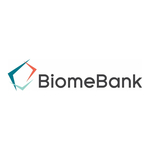- BiomeBank and Hudson Institute sign a 4-year collaboration agreement to discover and develop microbial therapies.
- BiomeBank gains exclusive license to paediatric IBD study, which identified key bacteria believed to be involved in disease onset and resolution. These bacteria were identified using a world-first method that unlocks culturing and metagenomics of colon biopsy samples.
ADELAIDE, Australia–(BUSINESS WIRE)–The translation of research into the development of innovative and life-saving microbial therapies is set to transform in Australia through a partnership between Hudson Institute of Medical Research and BiomeBank, a clinical stage microbiome therapeutics company.
A Memorandum of Understanding between the two organisations has been signed, enabling BiomeBank to bring its experience in the discovery and development of microbial therapies to enable translation of Hudson Institute’s microbiome research.
The partnership strengthens Hudson Institute’s business case for an Australian-first National Centre for Inflammation Research (“NCIR”) and will initially focus on the development of defined and targeted microbial therapies to treat unmet medical need for patients with Inflammatory Bowel Disease (“IBD”).
BiomeBank, which has recently launched its Series-A funding round, has signed a four-year collaborative agreement with Hudson Institute to translate current and future microbiome research into microbial therapies. This includes a recent deal granting BiomeBank access to important research on how the microbiota could treat paediatric IBD, which is unique because the research used culturing and high-resolution microbial analysis of the colon rather than stool samples.
BiomeBank CEO, Mr Thomas Mitchell said: “The combined strengths of the two organisations will put the new partnership at the forefront of the discovery and development of defined and targeted microbial therapies.
“Together with Hudson Institute and along with its plans to establish a world-class NCIR, we’ll work to identify the key microbial strains which play a role in IBD and combine our capabilities to develop a safe and effective microbial therapy for patients.
“This partnership places Australia firmly on the map as a world-leader in the development of a new class of therapies to treat unmet medical need across the globe.”
Hudson Institute Director and CEO, Professor Elizabeth Hartland added that: “The partnership between Hudson Institute and BiomeBank is a critical first step in translating our microbiome discoveries and developing a new generation of treatments for patients.”
Leading microbiome researcher from Hudson Institute, Dr Samuel Forster said: “The partnership will place Australia at the forefront of microbial research and drug discovery.
“Through our work at Hudson Institute, we have developed new ways to isolate human bacteria, resulting in one of the most diverse collections of human commensal bacteria in the world and a detailed understanding of how these may protect against disease.
“Modifying the microbiome as a treatment represents a new way of doing medicine. Working with BiomeBank will provide the opportunity to apply our cutting-edge discoveries to improve patients’ lives.”
Background
About BiomeBank
BiomeBank is a clinical stage biotechnology company developing a pipeline of microbiome therapies to treat unmet medical need. BiomeBank’s mission is to treat and prevent disease by restoring gut microbial ecology.
Backed by a world-leading team of translational microbiome experts, BiomeBank’s platform uses a unique combination of machine learning and microbiology to identify bacterial strains which influence disease, leading to the discovery and development of new therapies.
About Hudson Institute
Hudson Institute is home to more than 450 world-class scientists, clinicians and students pioneering outstanding discovery science and translational research.
As a leading Australian biomedical research institute, we convert scientific knowledge into new diagnostics, treatments, and cures.
Our researchers push the boundaries of scientific knowledge in five areas of human health: Inflammation, Reproductive health and pregnancy, Infant and child health, Cancer and Hormonal health.
The National Centre for Inflammation Research at Hudson Institute will harness scientific discoveries to curb the burden of disease, improve health for all Australians, attract international investment and grow Victorian jobs.
Contacts
Abbey Bell, Communications Consultant for BiomeBank, 0401 082 124, [email protected]
Rob Clancy, Communications & Media Manager, Hudson Institute 0408 579 313 [email protected]







